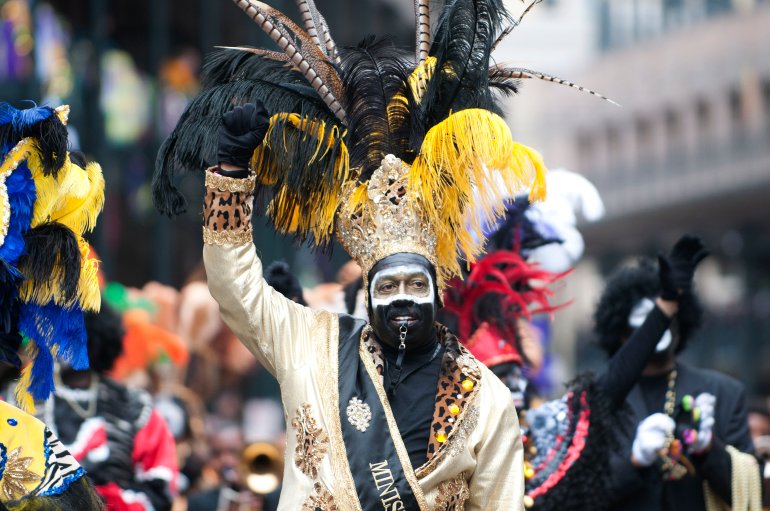
NEW ORLEANS – Amid fresh controversies over pictures of politicians and other public figures wearing “blackface,” the Zulu Social Aid & Pleasure Club has released a statement defending the historic Carnival organization’s use of black face paint.
While Zulu members traditionally wear grass skirts, carry spears, and paint their faces black every Mardi Gras Day as the iconic krewe winds its way through the city, that iconography should not be misconstrued as racist or demeaning, according to Zulu spokesman Clarence Becknell.
“Those who incorrectly compare our use of black makeup to ‘blackface’ minstrelsy can first look to our name to dispel that notion,” Becknell said. “Unlike minstrelsy, which was designed to ridicule and mock black people, the founders of our Social Aid & Pleasure Club chose the name ‘Zulu’ to honor their African ancestry and the continent’s most fierce warriors.”
The roots of Zulu lie in a Carnival organization called The Tramps, who decided to dress like Zulu warriors and form a benevolent Social Aid and Pleasure Club of the same name to honor South Africa’s Zulu tribe, who defeated a much more well-equipped British military force in 1879, Becknell said.
On the contrary, minstrel shows developed such a strong association with mocking and demeaning black people that the name of Jim Crow, the most famous blackface-wearing minstrel show performer, was used to refer to a raft of racist legislation used to suppress freed black slaves after the Civil War.
Beyond intent, Becknell said there is a much more practical matter that helped establish Zulu’s use of black makeup as opposed to the European-style Carnival masks used by some other old-line krewes.
“The financial and legal constraints on blacks in the Post-Reconstruction South made makeup (and not masks) the only option available to Zulu members at that time,” he said.
Zulu does not have any plans to change any of its traditional costumes or symbols, Becknell said.


